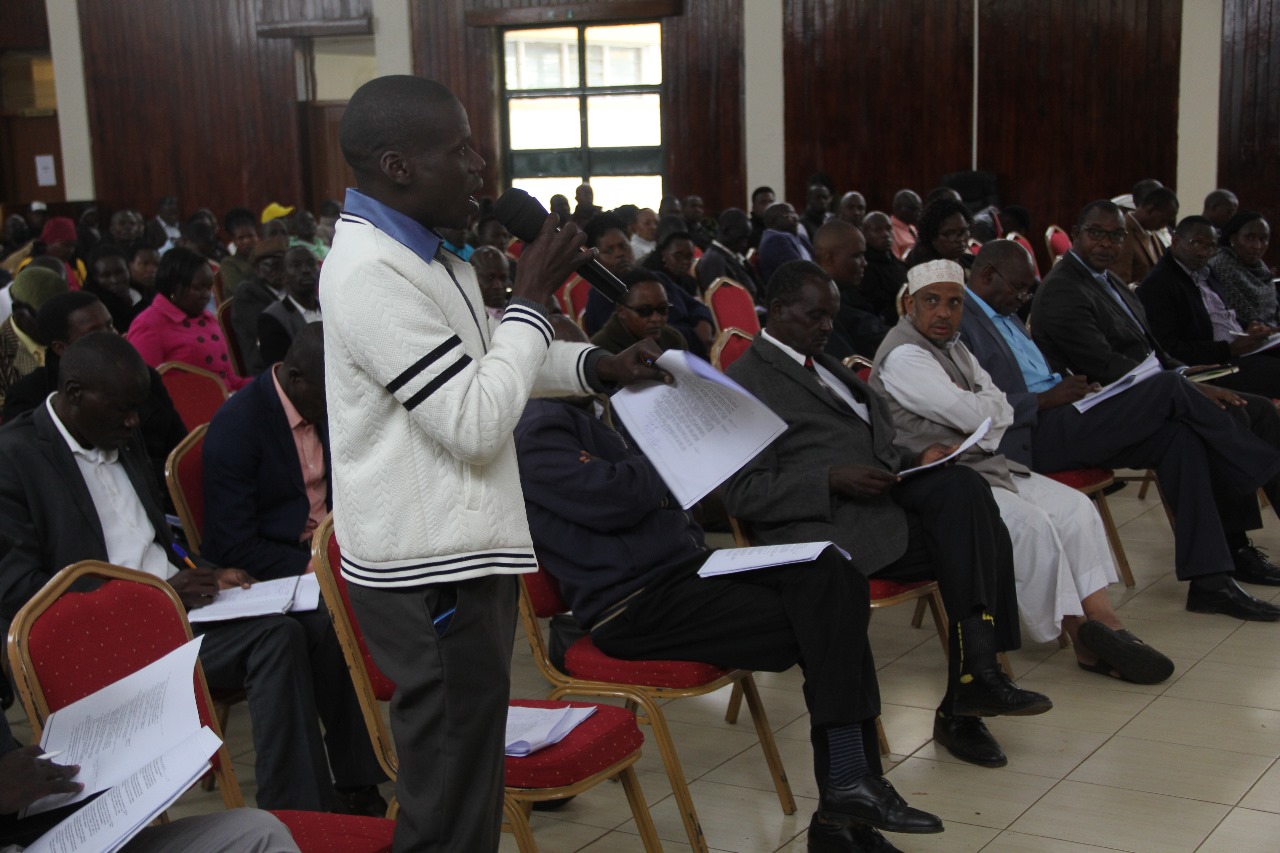Uasin Gishu,
Saturday, April 6, 2024
KNA by Angela Silayo & Ekuwam Sylvester
The Parliamentary Committee on Trade, Investment and Cooperatives is conducting public participation forums across the counties to sensitise wananchi on the County Licensing Uniform Procedure Bill that aims to establish a standard uniform procedure for licensing traders and businessmen across the counties.
During the public forum at Eldoret Town hall, in Uasin Gishu led by Aldai Member of Parliament (MP) Marianne Keittany who affirmed that the bill targeted to improve the working environment for business people and traders at the county level by creating an equal and efficient means of paying for licenses across all counties.
“When devolution came into place in the country it did not provide a uniform way of licensing traders thus licensing procedures, methods and fees vary from one county to the other.
You therefore find people who transport goods from a county like Mombasa end up paying a lot of fees which makes trading very expensive in the country,” Keittany said.
She noted that sometimes business people could own similar businesses in different counties but are charged differently even owning different licenses which contributes to the country being ranked low in terms of trading.
The legislator added that if the bill is enacted into law such cases will reduce helping business people in the country.
Speaking during the event, Uasin Gishu Weights and Measures Officer Philip Naibei affirmed that the bill serves to direct the county government to come up with regulations that will serve within those specific counties.
He said the county will aim to create a good working relationship between licensing officers and vendors in order to reduce the high incidences of harassment and intimidation from the public.
Keiyo North MP Adams Kipsanai said the proposed law is beneficial to the consumer and the government as it will ease the cost of doing business and further enable young people to get licenses at affordable prices.
“You find that in some sectors like the food sector, business people are charged for multiple licenses like hygiene, sanitation and a single business permit which is expensive to a business owner, especially startups who end up making losses,” he noted.
He also suggested that startups should be exempted from taxes until their businesses are stable noting that, if licenses are acquired at affordable rates the youth will venture more into business hence avoiding drugs and substance abuse in the counties.
Funyula MP Dr Wilberforce Oundo said that the county government provides these licenses but it is the work of the national government to enforce through conditions that are set during license acquisition and in the event of failure to follow the conditions the national government through NGAOs and Police officers are called upon to enforce the terms of those licenses.
“We hope that by the end of this public participation we will harmonize the process so that there is a seamless process of issuing the license and an accountable way of ensuring the sanction and punishment for those who break the conditions,” he affirmed.
Kajiado South MP Parashina Samuel Sakimba noted that the proposed bill will serve as a mother bill ensuring that all laws enacted in the county assemblies are done under the bill.
“The bill intends to ensure that all payments are equal in all counties. We also want to ensure that traders can freely transport goods from one county to another without being asked to pay at every county border. The bill will serve as a single permit to all traders,” he added.
National Authority for the campaign Against Alcohol and Drug abuse (NACADA) North Rift regional manager Eunice Arubia stated that in line with the public ethics act the bill should take into consideration the recent presidential directive that all officers in the enforcement or compliance chain like Kenya Revenue Authority (KRA) Kenya Bureau of standards (KEBS) National Government Administration Officers (NGAOs) and National Police shall not operate or own a bar directly or via proxy.
“The bill should check on the liquor licensing arm of the county government so that officers in charge of its licensing should not at the same time operate outlets as it creates conflict of interest posing a challenge during enforcement,” added Arubia.
She also added that if the bill comes to effect and ensures uniformity, the challenge of licensing liquor outlets will greatly reduce in the county.
Jane Chepkirui, representative of Kenya Pharmaceutical Association (KPA) North Rift region noted that it is hard to make profits due to multiple taxations that exist in the practice of pharmacy which impacts on the products and services they offer.
She urged the Committee to consider providing affordable licenses to the regulated professional businesses like clinics, hospitals and community pharmacies since they aim to provide Universal Health Coverage through affordable services to people.
Hellen Tuwei, National Council of People With Disabilities (NCPWDs), Uasin Gishu, representative called on the county administration through the proposed bill to develop a framework to give people with disabilities tax exemption certificates to enable them do business easily.
She said they have faced challenges with enforcement officers who fail to understand that they are supposed to be exempted from tax on their business operations.
Courtesy; KNA


